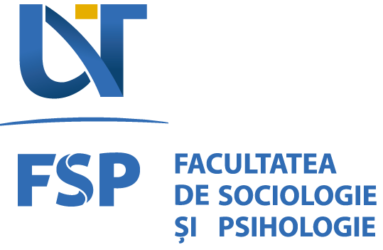The potency of science education materials considerably impacts student learning solutions and their engagement with technological concepts. Science Studies Every week is a widely used educational useful resource designed to enhance science literacy among elementary and center school students. This evaluation examines how well the content of Science Studies Once a week aligns with the Next Technology Science Standards (NGSS) and incorporates inquiry-based learning guidelines, both of which are critical for encouraging a deep understanding of research.
The NGSS framework stresses three-dimensional learning, integrating disciplinary core ideas (DCIs), scientific research and engineering practices (SEPs), and crosscutting concepts (CCCs). This approach aims to provide scholars with a comprehensive understanding of research by connecting knowledge, knowledge, and concepts across several scientific disciplines. Evaluating Research Studies Weekly through this specific lens involves analyzing the way well its lessons as well as activities incorporate these three dimensions.
Science Studies Every week content generally aligns effectively with the disciplinary core concepts outlined in the NGSS. Each issue covers a specific medical topic, such as ecosystems, weather condition patterns, or physical allows, providing detailed information and context. The material often involves historical context, current methodical research, and real-world apps, which help students understand the relevance and importance of the technological concepts being taught. This position with DCIs ensures that students are exposed to the fundamental ideas required for a robust understanding of science.
When it comes to science and engineering routines, Science Studies Weekly correctly integrates activities that showcase critical thinking and hands-on learning. The publication generally includes experiments, observational activities, and problem-solving tasks that encourage students to engage directly having scientific concepts. For example , scholars might be asked to design a super easy experiment to test the effects of several variables on plant expansion or to build a model to recognise the principles of flight. These types of activities align with NGSS practices such as planning in addition to carrying out investigations, analyzing in addition to interpreting data, and constructing explanations and designing solutions. By involving students in these practices, Science Studies Regular helps develop their expertise as young scientists and engineers.
The crosscutting principles in the NGSS are designed to help students make connections across different areas of science. All these concepts include patterns, bring about and effect, and methods and system models, amongst others. Science Studies Weekly features these concepts by showing their application in various methodical phenomena. For instance, an issue in ecosystems might emphasize the cause-and-effect relationships within meals webs or the systems contemplating required to understand ecological balance. https://repack-mechanics.com/608-01-daylight-update-9-2014-pc-repack-ot-rg-mehaniki.html By repeatedly exposing college students to these crosscutting concepts in various contexts, Science Studies Weekly reinforces their importance and enables students develop a more included understanding of science.
Inquiry-based understanding is another critical component of successful science education, emphasizing the significance of students asking questions, examining phenomena, and constructing their own understanding. Science Studies Each week supports inquiry-based learning by means of encouraging curiosity and query. The publication often poses open-ended questions and challenges students to think critically about scientific problems. For example , pupils might be asked to hypothesize why certain animals are found in specific habitats or to predict the outcomes of different weather conditions patterns. These types of questions energize inquiry and encourage learners to seek out answers through research and experimentation.
Furthermore, Technology Studies Weekly provides several opportunities for collaborative studying, which is a key aspect of inquiry-based education. Many activities are designed to be completed in pairs or perhaps groups, promoting discussion and the exchange of ideas. This collaborative approach mirrors how real scientific research is done and helps students develop important communication and teamwork capabilities. By working together in order to resolve problems and conduct trials, students learn to value various perspectives and approaches, enhancing their overall understanding of methodical concepts.
While Science Reports Weekly demonstrates strong place with NGSS and inquiry-based learning principles, there are locations for potential improvement. An excellent area is the differentiation regarding content to meet the varied needs of learners. While publication offers a wealth of facts and activities, ensuring that these types of resources are accessible in order to students with varying improved prior knowledge and finding out abilities is crucial. Providing supplemental scaffolding for struggling students or more challenging extensions with regard to advanced learners could boost the effectiveness of the material.
One more area for enhancement may be the integration of technology. Granted the increasing importance of digital literacy in science education and learning, incorporating more technology-based actions could enrich the learning practical experience. Virtual labs, simulations, and also interactive digital resources can provide students with opportunities to check out scientific concepts in ways that are not possible with traditional pic materials alone. Science Experiments Weekly could further take advantage of these tools to support and lengthen student learning.
Overall, Scientific research Studies Weekly content aligns well with the Next Era Science Standards and successfully incorporates inquiry-based learning concepts. Its emphasis on disciplinary primary ideas, science and know-how practices, and crosscutting principles provides a solid foundation for scientific disciplines education. By engaging scholars in hands-on activities, cultivating curiosity, and promoting collaborative learning, Science Studies Regular helps develop the skills as well as knowledge necessary for students to succeed as future scientists as well as informed citizens. As educative resources continue to evolve, persisted evaluation and adaptation will assure that Science Studies Regular remains a valuable tool in science education.
